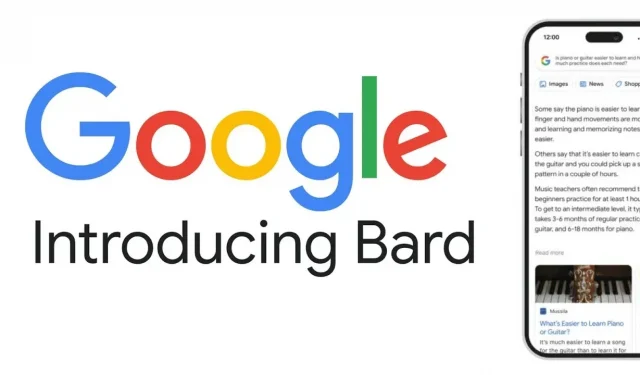Google will soon translate Bard to a much more advanced language model. The difference between LaMDA and PaLM must be striking.
The general public is not overly impressed with Google’s launch of its “experimental conversational service”Bard. When faced with OpenAI ChatGPT and Microsoft Bing Chat, which also run on OpenAI GPT-4, users found that the responses from Mountain View’s solution were not as detailed as those of its competitors. However, this may soon change. Google CEO Sundar Pichai confirmed on The New York Times “Hard Fork”podcast that Bard will move from his current LaMDA model to the larger PaLM dataset in the coming days.
Google will soon update Bard to a much more advanced language model.
Asked about the feedback following Bard’s departure, Sundar Pichai said, “We clearly have models that can do more. Very soon, maybe right now, we’ll be upgrading Bard to one of our much more functional PaLM models to give him more options, more structured thinking, including programming.”
To better appreciate the differences, Google said it had trained LaMDA on no fewer than 137 billion parameters when it revealed the details of its language models last year. PaLM, on the other hand, has been trained with about 540 billion parameters. Both have changed a lot since early 2022, but the contrast makes it clear why Google now wants to move Bard to PaLM with its larger data set and more diverse responses.
Sundar Pichai says he’s not worried about Google’s AI development speed compared to the competition. When Bard took his first steps in February, he acknowledged that using LaMDA had somewhat limited his options, but added that less processing power is an advantage, allowing users to test and profit. Sundar Pichai also wanted to make sure that Google will conduct its own safety and quality review of Bard once it’s released to the real world.
The difference between LaMDA and PaLM must be striking.
To do this, Sundar Pichai explained that Google does not want to launch “a more powerful model before it is fully confident that it can manage it properly. We are only at the very beginning. Over time we will have better models to plug in, but I don’t want it to be a race to see who gets there first, it’s very important for us to get it right.”
This sentiment is in the minds of more than 1,800 people (including tech leaders and other AI researchers) who have signed an open letter calling for a minimum six-month break in the development of AI technologies “more powerful than GPT-4.”
Sundar Pichai does not believe this can be done successfully without government involvement, but agrees that leadership is needed: “AI is too important to be regulated. It is also too important to be poorly regulated. So I’m glad that these conversations are taking place.”


